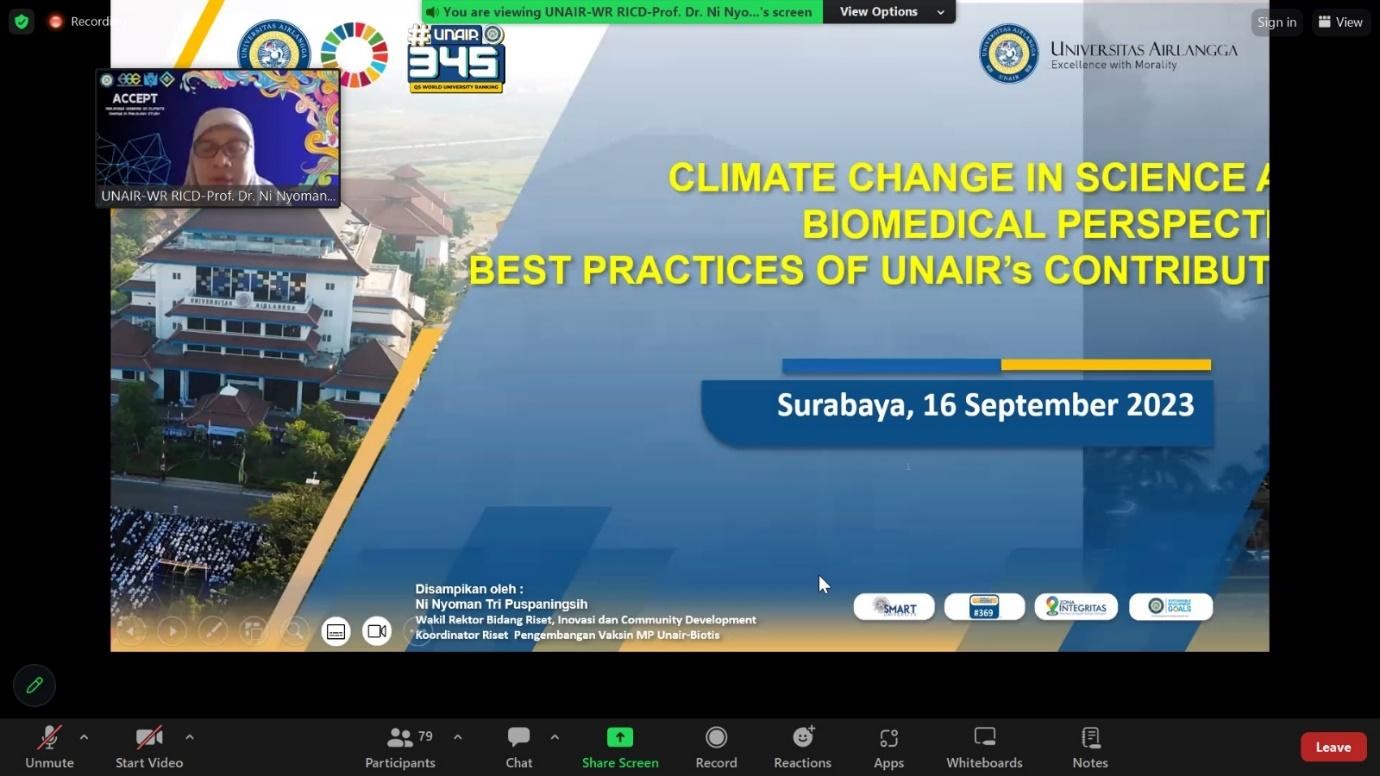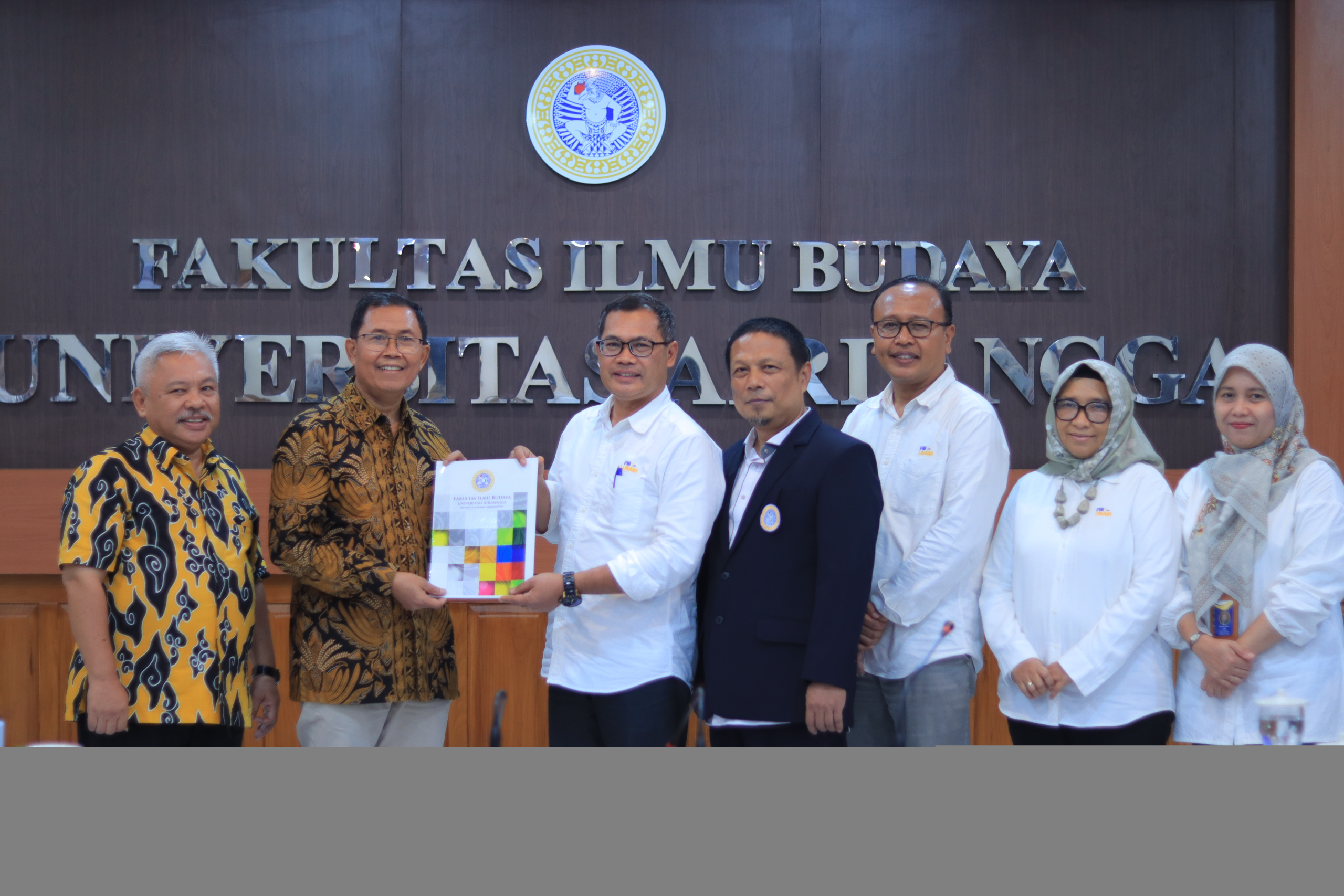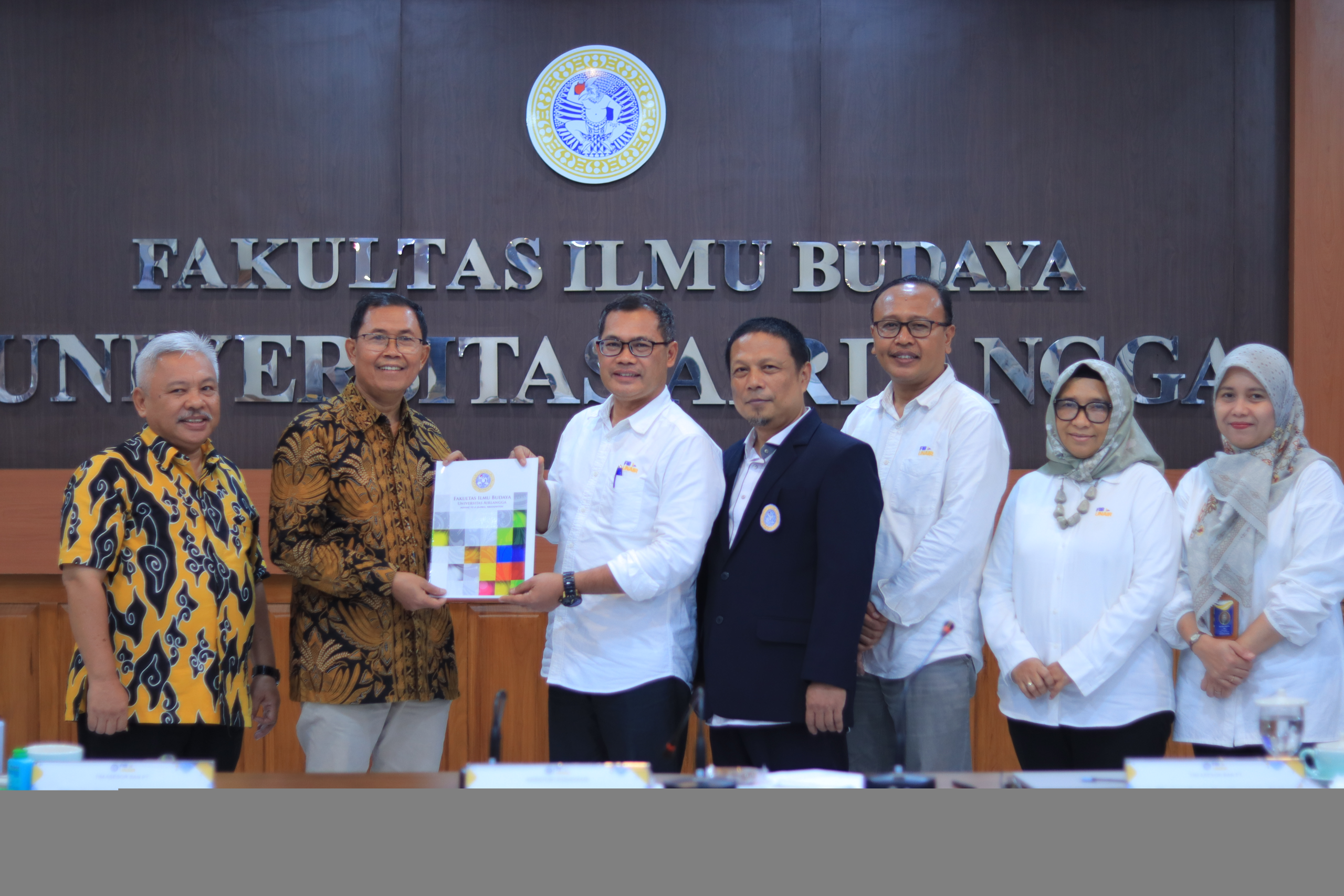Vice-Rector for Research, Innovation, and Community Development Universitas Airlangga Prof. Dr. Ni Nyoman Tri Puspaningsih Msi as ACCEPT Webinar speaker through Zoom Meeting on Saturday (19/9/2023). (Foto: Aidatul Fitriyah)
Writer: Aidatul Fitriyah | Editor: Ilma Arrafi Nafi’a
Indonesian Language and Literature Department (Sasindo), Faculty of Humanities, Universitas Airlangga (UNAIR), held an Airlangga Webinar on Climate Change in Philology Study (ACCEPT). This event is a series of webinars to deal with climate change in ancient manuscripts studied in philological studies.
The event was divided into three days. On the first day (16/9/2023), the theme was Climate Change in Science and Biomedical Perspective. On that occasion, the Vice-Rector for Research, Innovation and Community Development (RICD), Prof Dr Ni Nyoman Tri Puspaningsih MSi, was present as a speaker.
UNAIR RICD Challenges
On that occasion, Prof. Nyoman explained that the Research, Innovation and Community Development (RICD) Division contributes to various sectors. Some of them, said Prof. Nyoman, include the blue economy, green economy, health, digital economy, tourism and conservation, and food security.
She also explained that there are differences between SDGs and World Megatrends. “You can see the difference between Sdgs and World Megatrends. The hope is that all the problems among us will be resolved by 2030, but we don’t know,” she said.
Furthermore, Prof. Nyoman also said that it depends on each individual. “How they are aware of climate change or climate problems around us.”
Prof. Nyoman also emphasized that awareness and support from all parties are needed. Especially in overcoming the impact of climate change, it is necessary to maintain the world’s ecosystem.
“Without this, the efforts of various institutions will not bear fruit,” she explained.
Climate Impact
Furthermore, the professor of FST UNAIR also explained that global climate change can be a big problem for human health. Prof. Nyoman gave an example of the 7.8 magnitude earthquake that hit Turkey and Syria at the beginning of the year and a few weeks ago, which also occurred in Morocco and Libya.
“Climate change also has an impact on ecosystems and infectious diseases. This is an important role of sequencing, namely climate impacts, effects, tools and methods,” she explained.
In the end, Prof. Nyoman also said climate change can impact environmental changes, temperature, water, and soil changes. The effects that occur, she continued, are the emergence of invasive species, problems with human populations, growth, migration, and contact with zoonotic infectious diseases.
“Tools and methods that can be used in overcoming these problems with surveillance and discovery of biosurveillance, molecular detection, and metagenomic sequencing,” she concluded.
This activity also supports FIB in realizing SDG’s Point 4 Quality Education, and Point 13 Climate Action.
source
https://unair.ac.id




